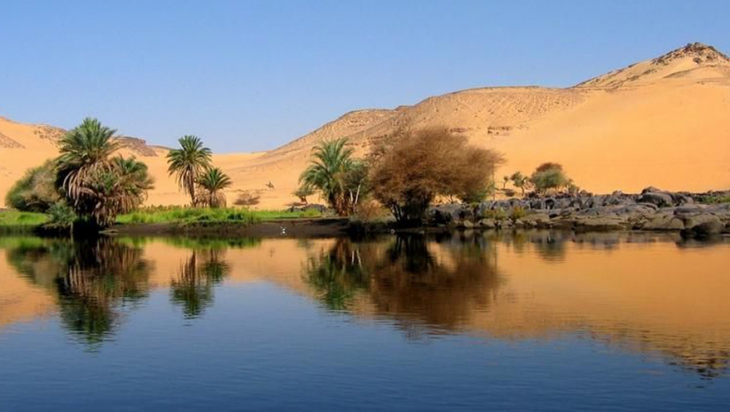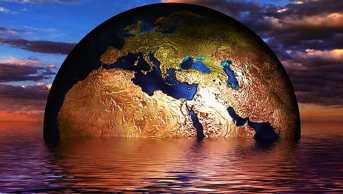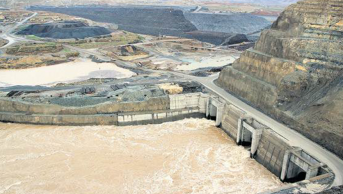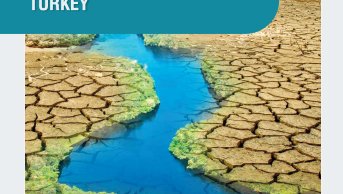Recent Developments Along the Nile Waters: Approaching a Crossroads

Almost all analyses about the Nile focus on Egypt more than any other riparian of the basin. One of the reasons for this is related with the world-wide importance of Egyptian civilization established along the banks of lower Nile. More than two millennia ago, Greek historian Herodotus called Egypt as the Gift of the Nile. Another reason, certainly, is associated with Egypt’s role and power in today’s Middle Eastern and African affairs. It is the most powerful state of all Nile riparians, one of the most powerful countries in all Middle East and North Africa Region (MENA).Egypt has a population of approximately 98 million, with a rate of 2 per cent increase, annually. It is the most populous country of the Arab states. It is also the third most crowded country in Africa, following Nigeria and Ethiopia. Agreements about the Nile waters reflects this Egyptian ‘hegemony’, at least, until now.
With the rise of Ethiopia, 21st century is about to witness a radical modification of status quo in Nile politics. Egypt is no longer in position of dictating the rules and ratios for sharing. Ethiopia now challenges Egypt’s predominant position in the Nile Basin. With over 105 million people, and a population increase rate close to 3 per cent, Ethiopia will remain the most crowded country of the Basin. It is the most populous landlocked country in the world. With lack of access to high seas, Ethiopia attaches great significance to Nile waters as anexploitable economic opportunity. The Ethiopian Dam on the Nile is named with this view in mind: It will be the Renaissance of Ethiopia. The Dam is really immense: It costs more than USD 4 billion, will have a hydroelectric production capacity of 6,000 megawatts (It will be the biggest in Africa), and will have a reservoir of 70 billion cubicmeters.
In terms of the Nile waters dispute, trilateral talks between Egypt, Ethiopia and Sudan have ended in futility in May after fourteen rounds of meetings. Following this, recent months were characterized by an intensification of bilateral talks. For instance, during the United Nations General Assembly meetings in September, Egyptian Minister of Foreign Affairs Sameh Shoukry told his Ethiopian counterpart Workneh Gebeyehu that Egypt is concerned about the slow progress of technical studies on the Renaissance Dam. His Ethiopian counterpart, on the other hand, once again expressed his total understanding of the Egyptian concerns, while stressing that Ethiopia is committed to 2015 declaration of principles.
Historically, Sudan has been a supporter of Egypt over Nile issues. For instance, in August, during Ethiopian Prime Minister’s visit to Khartoum, Sudan’s President Omar al-Bashir stated “We will say that we have the agreements which govern the Nile waters, for us here in Sudan, the agreement of 1959, which divided the Nile’s water between Sudan and Egypt. And we are completely committed to this agreement to ensure that Egypt’s share of the water is not affected by the building of the Renaissance Dam.’’ More recently, however,Sudan adopted more of a conciliatory role between Cairo and Addis Ababa. In September, during a visit to Ethiopian Prime Minister Hailemariam Desalegn,Bashir argued that the construction of Ethiopia’s controversial Grand Renaissance Dam on the Nile River would not impact water supplies to Egypt as feared by Cairo. Further, he called the Renaissance Dam as a ‘win-win’ project for all three countries.
Beside bilateral talks, unilateral moves of Egypt and Ethiopia signal that Nile waters issue will become more tense in 2018. Ethiopia continues the construction which seems to be finished within months. It apparently refrains from signing a new and binding agreement with Egypt before the completion of construction works. Ethiopian Prime Minister has stated that the resolution of the dispute is not easy and will take some time: “We also have other mechanisms to implement the declaration of principles, we have a technical committee, which is led by the ministers of water resources, and irrigation and electricity. I think our ministers are working very hard at that level. We also have an experts’ committee working on it, to study those two issues which have been delineated by the international panel of experts to be studied further.”
This stance is intolerable for Egypt, which many times expressed that it would not accept a ‘de facto’ solution from the Ethiopian side. Two new developments underline this Egyptian viewpoint. First, the acting head of the General Intelligence Service, Tarek Sallam was appointed by Egyptian President as Egypt's ambassador to Uganda. Second, Mohamed Idris, Egypt's former ambassador to Ethiopia and the African Union, and Deputy Foreign Minister for African Affairs, was appointed as Egypt's head of delegation to the United Nations in New York. According to insiders, the former reflects the increase of the role of the intelligence in dealing with the Nile water dispute; while the latter demonstrates the growing significance of the Nile water dispute for Egypt in the period ahead.
As the Grand Ethiopian Renaissance Dam comes closer to completion, it is evident that there will be more dynamism in Nile water politics in the near future. This dynamism may result in more cooperation if riparians act responsibly.








